April 17 stands as one of history’s most eventful days, witnessing the rise and fall of empires, groundbreaking discoveries, and moments that shaped our modern world across centuries of human achievement.
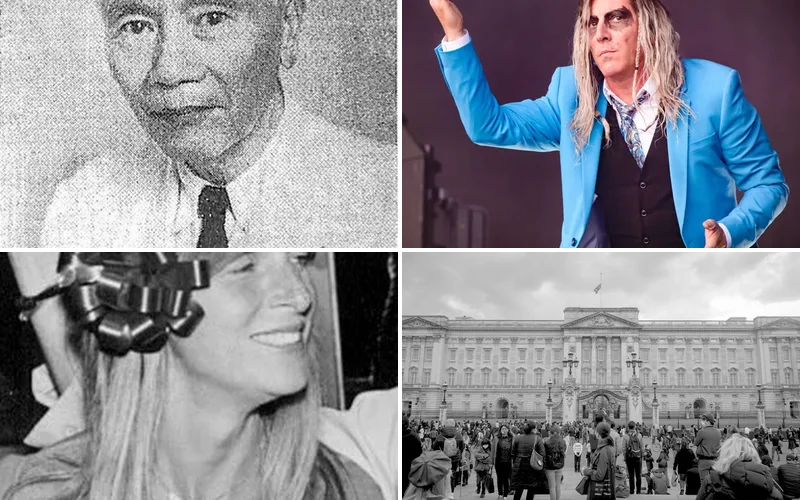
Politics and Government Events on April 17
1905 – Lochner v. New York Supreme Court Decision
The Supreme Court of the United States rendered a landmark decision in Lochner v. New York, establishing the “right to free contract” as implicit in the Fourteenth Amendment’s due process clause. This ruling fundamentally altered the relationship between government regulation and individual economic freedom.
The decision struck down New York’s bakery hour limitations, prioritizing contractual liberty over worker protection laws. This judicial precedent would influence labor relations and constitutional interpretation for decades to come.
1961 – Bay of Pigs Invasion Begins
CIA-trained Cuban exiles launched their ill-fated assault on Castro’s Cuba, landing at the Bay of Pigs with hopes of sparking a popular uprising. The covert operation represented a critical moment in Cold War tensions between the United States and Soviet-aligned Cuba.
The invasion would ultimately fail within days, strengthening Castro’s grip on power and damaging American credibility. This foreign policy disaster would haunt the Kennedy administration and reshape U.S.-Cuba relations for generations.
1971 – Provisional Government of Bangladesh Forms
The Provisional Government of Bangladesh established itself during the liberation war against Pakistan, marking a crucial step toward independence. This governmental framework provided legitimate authority for the Bengali independence movement amid ongoing military conflict.
The provisional government coordinated international diplomatic efforts while organizing resistance against Pakistani forces. Their formation represented the political foundation upon which modern Bangladesh would emerge as a sovereign nation.
1945 – Tran Trong Kim Appointed Vietnam Prime Minister
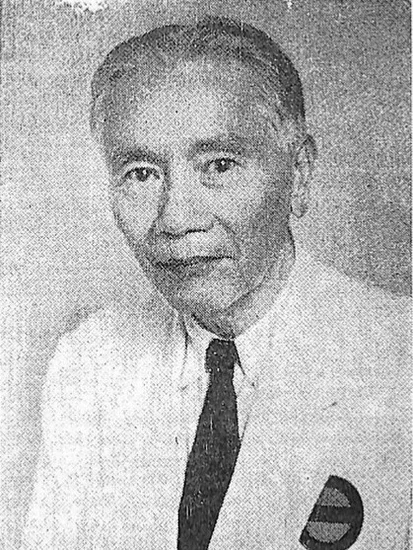
Historian Tran Trong Kim assumed the role of Prime Minister of the Empire of Vietnam during the final months of World War II. His appointment came at a pivotal moment when Vietnam navigated between Japanese occupation and emerging independence movements.
Kim’s government faced the enormous challenge of maintaining stability while various political factions competed for control. His brief tenure would bridge the gap between colonial rule and the complex political landscape of post-war Vietnam.
2003 – Finland’s First Female Prime Minister Takes Office

Anneli Jäätteenmäki made history by becoming Finland’s first female prime minister, breaking significant gender barriers in Nordic politics. Her appointment represented a milestone in women’s political participation and leadership in Scandinavian democracies.
Jäätteenmäki’s rise to power demonstrated the progressive nature of Finnish political culture and gender equality. Her leadership would inspire future generations of women to pursue high-level political careers across the Nordic region.
Military and Naval History on April 17
1941 – Yugoslavia Signs Armistice with Axis Powers
The Kingdom of Yugoslavia formally surrendered to German and Italian forces, completing the Axis invasion that began earlier in April. This capitulation marked the end of organized Yugoslav resistance and the beginning of brutal occupation policies.
The armistice led to the country’s partition among Axis powers and puppet states. Yugoslavia’s fall would spark years of fierce partisan warfare and ethnic conflict that devastated the Balkans throughout the war.
1942 – General Henri Giraud Escapes German Prison
French General Henri Giraud executed a daring escape from Königstein Fortress, where he was held as a prisoner of war. His dramatic flight from German captivity provided a significant morale boost to the French Resistance and Allied forces.
Giraud’s escape demonstrated that even heavily fortified Nazi prisons could be breached with careful planning and determination. His freedom would later prove valuable to Allied strategic planning and French liberation efforts.
1944 – Greek Communist Forces Attack Rival Resistance Group
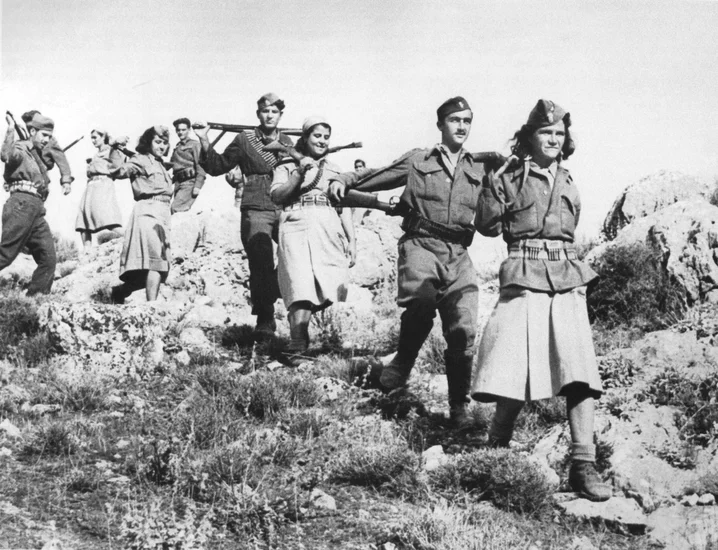
The Communist-controlled Greek People’s Liberation Army launched a devastating attack against the smaller National and Social Liberation resistance group. This internal conflict weakened Greek resistance efforts and resulted in the murder of leader Dimitrios Psarros.
The fratricidal warfare between resistance groups foreshadowed the brutal civil war that would engulf Greece after German withdrawal. These political divisions would tear apart the country’s anti-Nazi coalition and complicate post-war reconstruction efforts.
1945 – Montese Liberated from Nazi Forces
Allied forces successfully liberated the Italian town of Montese from German occupation during the final weeks of World War II. This victory contributed to the broader Allied offensive that was rapidly dismantling Nazi control throughout northern Italy.
The liberation of Montese represented another step in the complete collapse of German defensive lines in Italy. Local civilians emerged from months of occupation to witness the restoration of Allied authority and the promise of peace.
Science and Discovery Milestones on April 17
1970 – Apollo 13 Returns Safely to Earth
The damaged Apollo 13 spacecraft successfully completed its harrowing journey back to Earth, marking one of NASA’s greatest rescue operations. The mission, which began as a planned lunar landing, became a testament to human ingenuity and problem-solving under extreme pressure.
Ground control and the astronaut crew worked tirelessly to overcome life-threatening technical failures using limited resources. This “successful failure” demonstrated the resilience of the American space program and the dedication of thousands of engineers and technicians.
2014 – Kepler Telescope Discovers First Earth-Size Habitable Planet
NASA’s Kepler space telescope confirmed the discovery of the first Earth-size planet located within the habitable zone of another star. This groundbreaking finding opened new possibilities for understanding planetary formation and the potential for life beyond our solar system.
The discovery marked a significant milestone in the search for potentially habitable exoplanets resembling Earth. Scientists worldwide celebrated this achievement as a crucial step toward answering humanity’s fundamental questions about life in the universe.
1998 – Space Shuttle Columbia Launches Final Spacelab Mission

Space Shuttle Columbia launched on STS-90, carrying the final Spacelab mission into orbit for crucial scientific research. This mission marked the end of an era in space-based laboratory research and international scientific cooperation.
The Spacelab program had enabled countless experiments in microgravity conditions, advancing our understanding of materials science, biology, and physics. Columbia’s final Spacelab mission represented the culmination of years of innovative research conducted in space.
Cultural and Arts Events on April 17
1951 – Peak District Becomes UK’s First National Park
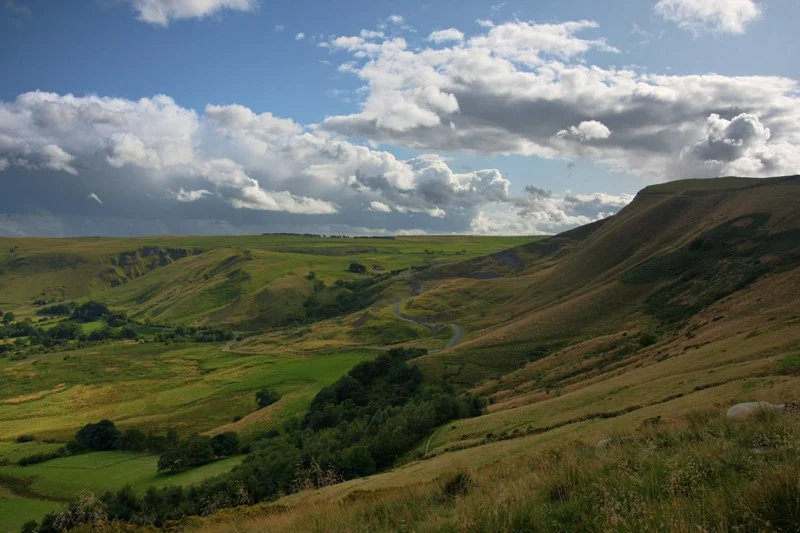
The Peak District achieved the historic distinction of becoming the United Kingdom’s first designated National Park. This milestone established a new model for environmental conservation and public access to natural landscapes across Britain.
The designation protected vast areas of moorland, valleys, and historic villages from industrial development while ensuring public recreational access. This pioneering conservation effort would inspire the creation of numerous additional national parks throughout the British Isles.
1931 – Catalan Republic Becomes Autonomous Government
Following negotiations between Catalan and Spanish provisional governments, the short-lived Catalan Republic transformed into the Generalitat de Catalunya. This autonomous government represented a compromise between Catalan independence aspirations and Spanish unity.
The Generalitat provided Catalans with significant self-governance while remaining within the Spanish Republic framework. This political arrangement would become a model for regional autonomy that continues to influence Spanish politics today.
1986 – Netherlands and Scilly Isles Declare Peace
An alleged 335-year state of war between the Netherlands and the Isles of Scilly officially ended with a formal peace declaration. This quirky diplomatic resolution captured public imagination and highlighted forgotten historical conflicts from the English Civil War era.
The ceremonial peace treaty brought closure to what may have been the world’s longest-running war, albeit largely theoretical. This unusual diplomatic event demonstrated how historical oversights can persist for centuries before being corrected.
Religious and Social Events on April 17
1907 – Ellis Island Processes Record Number of Immigrants

Ellis Island immigration center processed an unprecedented 11,747 people in a single day, establishing the highest daily immigration total in American history. This massive influx represented the peak of the great wave of immigration that transformed American society.
Thousands of European immigrants passed through the station’s medical examinations and legal inspections, seeking new lives in America. This record-breaking day symbolized the nation’s role as a beacon of hope for those fleeing poverty and persecution.
1978 – Mir Akbar Khyber Assassination Triggers Afghan Revolution
The assassination of Mir Akbar Khyber, a prominent Afghan communist leader, sparked the Saur Revolution that would transform Afghanistan’s political landscape. This murder provided the catalyst for communist forces to overthrow the existing government.
Khyber’s death galvanized opposition groups and led to widespread demonstrations against the ruling regime. The resulting revolution would ultimately bring Soviet influence to Afghanistan and set the stage for decades of conflict.
1982 – Canadian Constitution Patriated
Queen Elizabeth II proclaimed the Constitution Act, completing the patriation of the Canadian constitution from British parliamentary control. This historic moment marked Canada’s final step toward complete legislative independence from the United Kingdom.
The patriation ceremony in Ottawa represented the culmination of years of federal-provincial negotiations and constitutional reform efforts. Canada finally possessed full sovereignty over its constitutional framework, though Quebec notably refused to sign the agreement.
Business and Economic Events on April 17
1992 – Katina P Oil Spill Disaster
The tanker Katina P was deliberately run aground off Maputo, Mozambique, releasing 60,000 tons of crude oil into the ocean. This environmental disaster devastated marine ecosystems and coastal communities along the African coastline.
The massive oil spill highlighted the environmental risks associated with international shipping and inadequate maritime safety regulations. Cleanup efforts would continue for years while the ecological damage affected fishing communities and wildlife populations.
2013 – West Texas Fertilizer Plant Explosion

A catastrophic explosion at a fertilizer plant in West, Texas, killed 15 people and injured 160 others, devastating the small community. The blast destroyed numerous buildings and created a crater reminiscent of a bombing, shocking residents and emergency responders.
The industrial accident raised serious questions about chemical plant safety regulations and emergency preparedness in rural communities. Federal investigators would spend years determining the cause while the town struggled to rebuild its infrastructure and economy.
1925 – Communist Party of Korea Founded
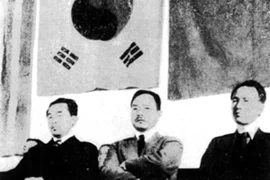
The Communist Party of Korea was established in Japanese-occupied Seoul by Kim Yong-bom and Pak Hon-yong during a period of growing resistance to colonial rule. This political organization would become central to Korean independence movements and post-war political development.
The party’s formation occurred under extreme secrecy due to harsh Japanese repression of political activities. These early communist organizers laid the groundwork for future political movements that would shape both North and South Korea.
Transportation and Infrastructure on April 17
1964 – Jerrie Mock Completes First Solo Round-World Flight by Woman
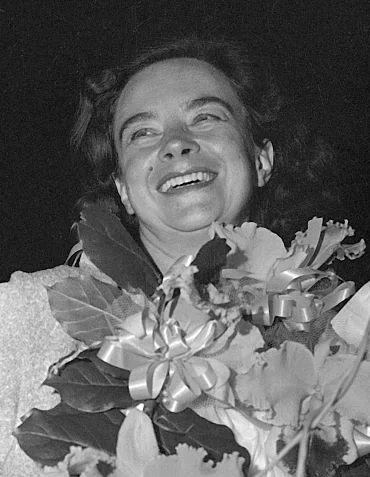
Jerrie Mock achieved aviation history by completing the first solo around-the-world flight by a woman in her aircraft “Spirit of Columbus.” Her 29½-day journey took off and landed at Port Columbus International Airport in Ohio, establishing new records for female aviators.
Mock’s achievement broke significant gender barriers in aviation while demonstrating the reliability of modern aircraft for long-distance travel. Her successful circumnavigation inspired future generations of female pilots and advanced women’s participation in aviation careers.
1946 – Last French Troops Withdraw from Syria

The final French military units departed Syria, marking the end of the French Mandate and the beginning of full Syrian independence. This withdrawal represented the conclusion of European colonial control over the Levant region.
Syria’s liberation from French occupation fulfilled nationalist aspirations that had persisted since the end of World War I. The troop withdrawal enabled Syria to pursue independent foreign policy and domestic governance without external colonial interference.
2021 – Prince Philip’s Funeral at Windsor Castle
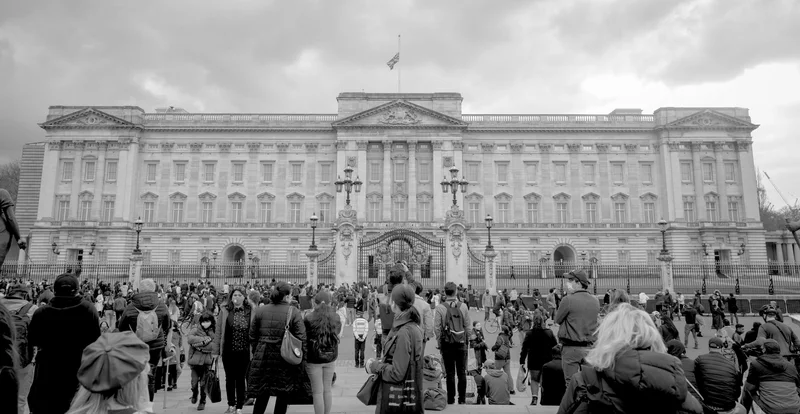
The funeral of Prince Philip, Duke of Edinburgh, took place at St George’s Chapel, Windsor Castle, marking the end of an era in British royal history. The ceremony, conducted under COVID-19 restrictions, drew global attention and demonstrated the monarchy’s enduring significance.
The Duke’s funeral represented a solemn moment for the British Royal Family and the Commonwealth nations. His death marked the end of the longest royal consort relationship in British history and a significant transition for the monarchy.
Sports and Recreation on April 17
1975 – Cambodian Civil War Ends
The Khmer Rouge captured Phnom Penh and forced the surrender of Cambodian government forces, ending the devastating civil war. This victory marked the beginning of one of the 20th century’s most brutal genocidal regimes under Pol Pot’s leadership.
The communist takeover would lead to the systematic murder of approximately two million Cambodians through execution, forced labor, and starvation. The Khmer Rouge’s agricultural revolution devastated the country’s economy and social structure for generations.
1969 – Sirhan Sirhan Convicted of Robert Kennedy Assassination
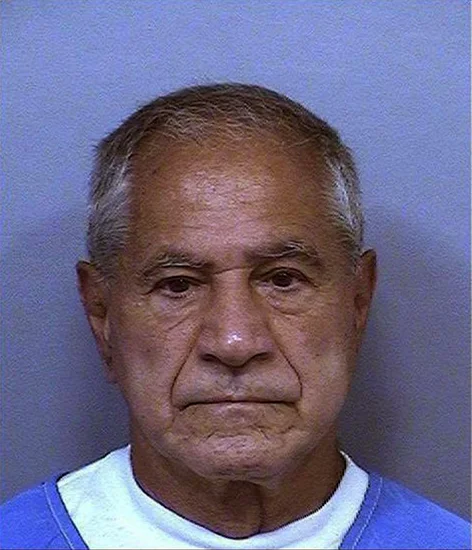
Sirhan Sirhan was found guilty of assassinating Senator Robert F. Kennedy during his 1968 presidential campaign at the Ambassador Hotel in Los Angeles. The conviction brought legal closure to one of the most traumatic political murders in American history.
Kennedy’s assassination had devastated the Democratic Party and altered the course of American politics during a turbulent election year. Sirhan’s conviction provided some measure of justice while the nation continued to grapple with political violence and social upheaval.
1912 – Russian Troops Fire on Siberian Gold Workers
Russian military forces opened fire on striking goldfield workers in northeast Siberia, killing at least 150 people in a brutal suppression of labor unrest. This massacre demonstrated the Tsarist government’s willingness to use deadly force against working-class protests.
The Siberian goldfield massacre reflected the growing tensions between workers and authorities that would eventually contribute to the Russian Revolution. These violent confrontations highlighted the regime’s inability to address legitimate worker grievances through peaceful means.
Notable Births on April 17
1918 – William Holden, American Actor

William Holden was born in O’Fallon, Illinois, destined to become one of Hollywood’s most celebrated leading men. His natural charisma and versatile acting ability would make him a major star during cinema’s golden age.
Holden’s career would span decades, earning him an Academy Award for “Stalag 17” and starring in classics like “Sunset Boulevard” and “The Bridge on the River Kwai.” His performances defined masculine sophistication in American cinema.
1972 – Jennifer Garner, American Actress

Jennifer Garner was born in Houston, Texas, beginning a journey that would lead to television and film stardom. Her athletic background and natural acting talent would make her a versatile performer in both action and dramatic roles.
Garner’s breakthrough role in “Alias” established her as a capable action star, while her film career demonstrated remarkable range across genres. Her dedication to both entertainment and humanitarian causes would define her public persona.
1920 – Sirimavo Bandaranaike, World’s First Female Prime Minister
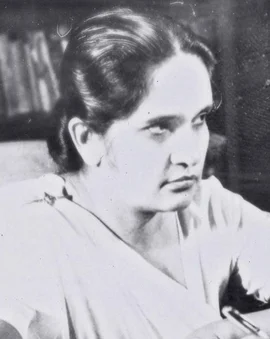
Sirimavo Bandaranaike was born in Balangoda, Ceylon, destined to break historic gender barriers in global politics. Her entry into politics would revolutionize women’s participation in government leadership worldwide.
Bandaranaike would serve as Prime Minister of Sri Lanka and become the world’s first female head of government. Her political career spanning decades would inspire countless women to pursue leadership roles in their respective countries.
1957 – Afrika Bambaataa, American DJ and Hip-Hop Pioneer

Afrika Bambaataa was born in the Bronx, New York, where he would become one of hip-hop culture’s founding fathers. His innovative musical approach would help transform a local street culture into a global phenomenon.
Bambaataa’s DJ techniques and cultural philosophy helped establish hip-hop’s core elements and social consciousness. His influence would extend far beyond music, shaping art, dance, and social movements worldwide.
1964 – Maynard James Keenan, American Singer-Songwriter

Maynard James Keenan was born in Ravenna, Ohio, beginning a musical journey that would redefine progressive rock and metal. His distinctive vocal style and philosophical approach would influence generations of musicians.
Keenan’s work with Tool, A Perfect Circle, and Puscifer would establish him as one of rock’s most innovative and mysterious figures. His artistic vision would consistently challenge conventional music industry expectations and fan relationships.
Notable Deaths on April 17
2014 – Gabriel García Márquez, Colombian Author and Nobel Laureate

Gabriel García Márquez, the masterful Colombian writer who pioneered magical realism, passed away in Mexico City at age 87. His literary genius had transformed Latin American literature and earned him the Nobel Prize in Literature in 1982.
Márquez’s novels, including “One Hundred Years of Solitude” and “Love in the Time of Cholera,” captured the complexity and wonder of Latin American experience. His death marked the end of an era in world literature and Latin American cultural expression.
1975 – Sarvepalli Radhakrishnan, Indian Philosopher and President
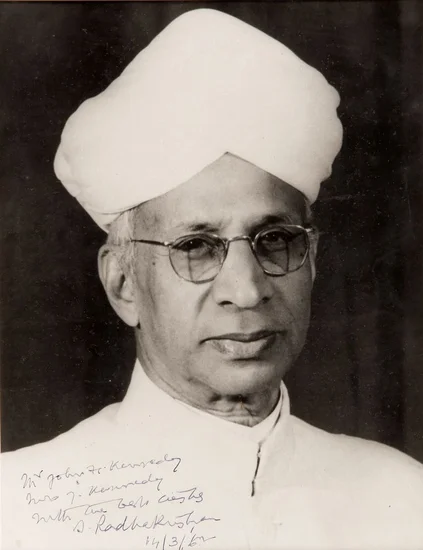
Sarvepalli Radhakrishnan, India’s distinguished philosopher and second President, died in Chennai at age 86. His scholarly work bridged Eastern and Western philosophical traditions while serving his nation with distinction.
Radhakrishnan’s academic career at Oxford and his political leadership in independent India demonstrated the synthesis of intellectual achievement and public service. His birthday continues to be celebrated as Teacher’s Day in India.
1998 – Linda McCartney, American Photographer and Musician

Linda McCartney, accomplished photographer and musician, died in Tucson, Arizona, at age 56 after battling breast cancer. Her work as an artist and her partnership with Paul McCartney had influenced both music and photography.
McCartney’s photography captured intimate moments of rock music history while her activism promoted animal rights and vegetarianism. Her death deeply affected the music world and her family’s creative endeavors.
1960 – Eddie Cochran, American Rock and Roll Pioneer

Eddie Cochran, the influential rock and roll singer-songwriter, died in a car accident in Chippenham, England, at just 21 years old. His brief career had already established him as one of rock music’s most promising talents.
Cochran’s hits like “Summertime Blues” and “C’mon Everybody” defined the sound of late 1950s rock and roll. His tragic death cut short a career that had already influenced countless musicians and shaped popular music’s development.
2018 – Barbara Bush, American First Lady and Literacy Advocate

Barbara Bush, beloved First Lady and mother of President George W. Bush, died at her Houston home at age 92. Her wit, warmth, and dedication to literacy education had made her one of America’s most respected public figures.
Bush’s advocacy for reading and education touched millions of lives while her straightforward manner endeared her to Americans across political lines. Her death marked the end of a remarkable life dedicated to public service and family values.
Holidays and Observances on April 17
World Hemophilia Day
World Hemophilia Day raises global awareness about hemophilia and other bleeding disorders affecting millions worldwide. This international observance promotes understanding of these genetic conditions and advocates for improved treatment access.
The day encourages education about bleeding disorders while supporting patients and families facing these challenges. Medical professionals and advocacy organizations coordinate events to advance research and patient care worldwide.
Evacuation Day in Syria

Syria celebrates Evacuation Day, commemorating the recognition of independence from France in 1946. This national holiday honors the end of the French Mandate and the beginning of Syrian sovereignty.
The observance reflects Syrian national pride and the struggle for independence from colonial rule. Citizens celebrate their nation’s freedom while reflecting on the challenges and achievements of independent governance.
Malbec World Day
Malbec World Day celebrates the distinctive wine varietal that has become synonymous with Argentine viticulture. This international observance promotes appreciation for Malbec wines and their cultural significance in wine-producing regions.
Wine enthusiasts worldwide participate in tastings and educational events highlighting Malbec’s unique characteristics and food pairings. The day supports wine tourism and appreciation for agricultural traditions in wine-producing countries.
